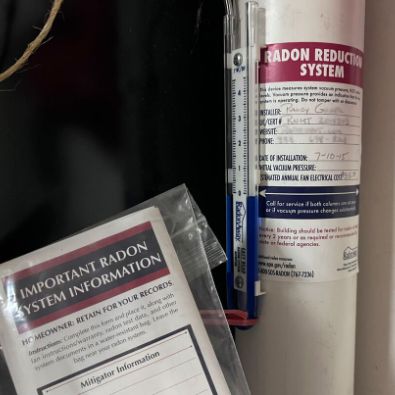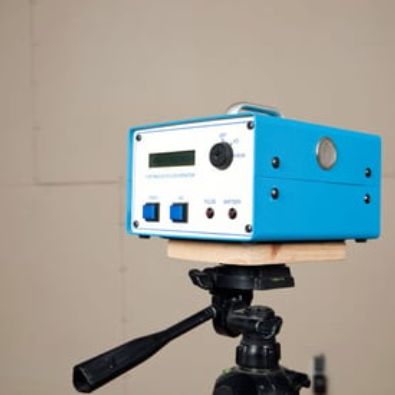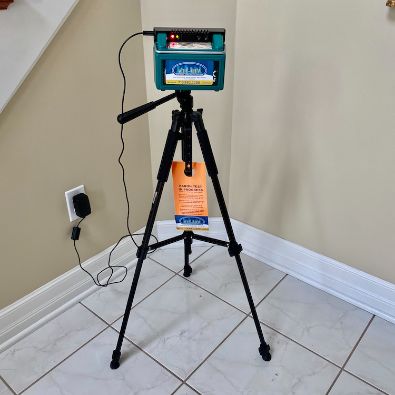Radon Testing & Inspection
Call Now! Schedule Your Radon Testing & Inspection 319-231-3946
The Importance of Radon Testing and Inspection in Adel, Iowa
Radon is a naturally occurring, odorless, and colorless gas that can be found in the soil and rocks beneath homes and buildings. It is the second leading cause of lung cancer in the United States and is a serious health hazard. In Adel, Iowa, radon testing and inspection is an important part of home and business safety.All Iowa Radon is a local company that specializes in radon testing and inspection. They use state-of-the-art equipment to detect radon levels in homes and businesses. They also provide radon mitigation services to reduce the levels of radon in a home or business.Radon testing and inspection is important for Adel, Iowa residents because it can help identify potential health risks. Radon is a carcinogen, meaning it can cause cancer. It is important to test for radon levels in order to protect the health of those living and working in the area.Radon testing and inspection can also help identify potential structural issues in a home or business. Radon can seep into a building through cracks and other openings in the foundation. If these issues are not addressed, they can lead to further structural damage and health risks.All Iowa Radon is committed to providing Adel, Iowa residents with the highest quality radon testing and inspection services. They use the latest technology and techniques to ensure accurate results. They also provide radon mitigation services to reduce the levels of radon in a home or business.Radon testing and inspection is an important part of home and business safety in Adel, Iowa. All Iowa Radon is dedicated to providing the highest quality services to ensure the safety of those living and working in the area.Adel, Iowa is a small city located in Dallas County, Iowa. It is part of the Des Moines–West Des Moines Metropolitan Statistical Area. Adel was founded in 1846 and is the county seat of Dallas County. The population of Adel was 3,682 at the 2010 census. Adel is known for its historic downtown, which is listed on the National Register of Historic Places.
Adel is home to the Dallas County Courthouse, which was built in 1876 and is the oldest courthouse in Iowa. The courthouse is a popular tourist attraction and is listed on the National Register of Historic Places. Adel is also home to the Adel Historical Museum, which houses artifacts from the city's history. The museum is open to the public and offers guided tours.
Adel is home to the Adel Sweet Corn Festival, which is held annually in August. The festival features a parade, live music, carnival rides, and a variety of food vendors. The festival is a popular event in the community and attracts visitors from all over the state.
Adel is also home to the Adel Public Library, which was established in 1876. The library is a member of the Des Moines Public Library System and offers a variety of services, including books, magazines, newspapers, and audio-visual materials. The library also offers a variety of programs, including story times, book clubs, and computer classes.
Adel is home to the Adel-DeSoto-Minburn Community School District, which serves students in grades K-12. The district has four elementary schools, one middle school, and one high school. The district also offers a variety of extracurricular activities, including sports, music, and theater.
Adel is a small city with a rich history and a vibrant community. It is home to a variety of attractions, including the Dallas County Courthouse, the Adel Historical Museum, the Adel Sweet Corn Festival, and the Adel Public Library. Adel is also home to the Adel-DeSoto-Minburn Community School District, which provides a quality education to students in the area.
Local Radon Testing & Inspection Experts Call NOW! 319-231-3946
The History of Radon in Adel, Iowa
Adel, Iowa has a long history of radon exposure. Radon is a naturally occurring radioactive gas that is found in soil and rocks. It is odorless, colorless, and tasteless, and can be found in the air, water, and soil. Radon is the second leading cause of lung cancer in the United States, and is especially dangerous when it accumulates in enclosed spaces.
Adel, Iowa has been dealing with radon exposure since the early 1900s. In the early 1900s, the city was built on top of a large deposit of uranium ore. This uranium ore was mined and processed, releasing radon gas into the air. The city was also built on top of a large limestone deposit, which is known to contain high levels of radon.
In the late 1970s, the Environmental Protection Agency (EPA) began to recognize the dangers of radon exposure and began to take steps to reduce the risk of radon exposure in Adel, Iowa. The EPA conducted a study in the late 1970s that found that the levels of radon in Adel, Iowa were higher than the national average. The EPA then implemented a radon mitigation program in Adel, Iowa, which included the installation of radon mitigation systems in homes and businesses.
Since the implementation of the radon mitigation program, the levels of radon in Adel, Iowa have decreased significantly. The EPA continues to monitor the levels of radon in Adel, Iowa, and has found that the levels of radon are now below the national average. The EPA also recommends that all homes and businesses in Adel, Iowa have their radon levels tested regularly to ensure that they are not exposed to dangerous levels of radon.
Adel, Iowa has a long history of radon exposure, but thanks to the efforts of the EPA, the levels of radon in Adel, Iowa are now below the national average. The EPA recommends that all homes and businesses in Adel, Iowa have their radon levels tested regularly to ensure that they are not exposed to dangerous levels of radon.
Contact Us For A Free Quote!
Our team of experts is ready to provide you with personalized guidance and deliver exceptional results.






